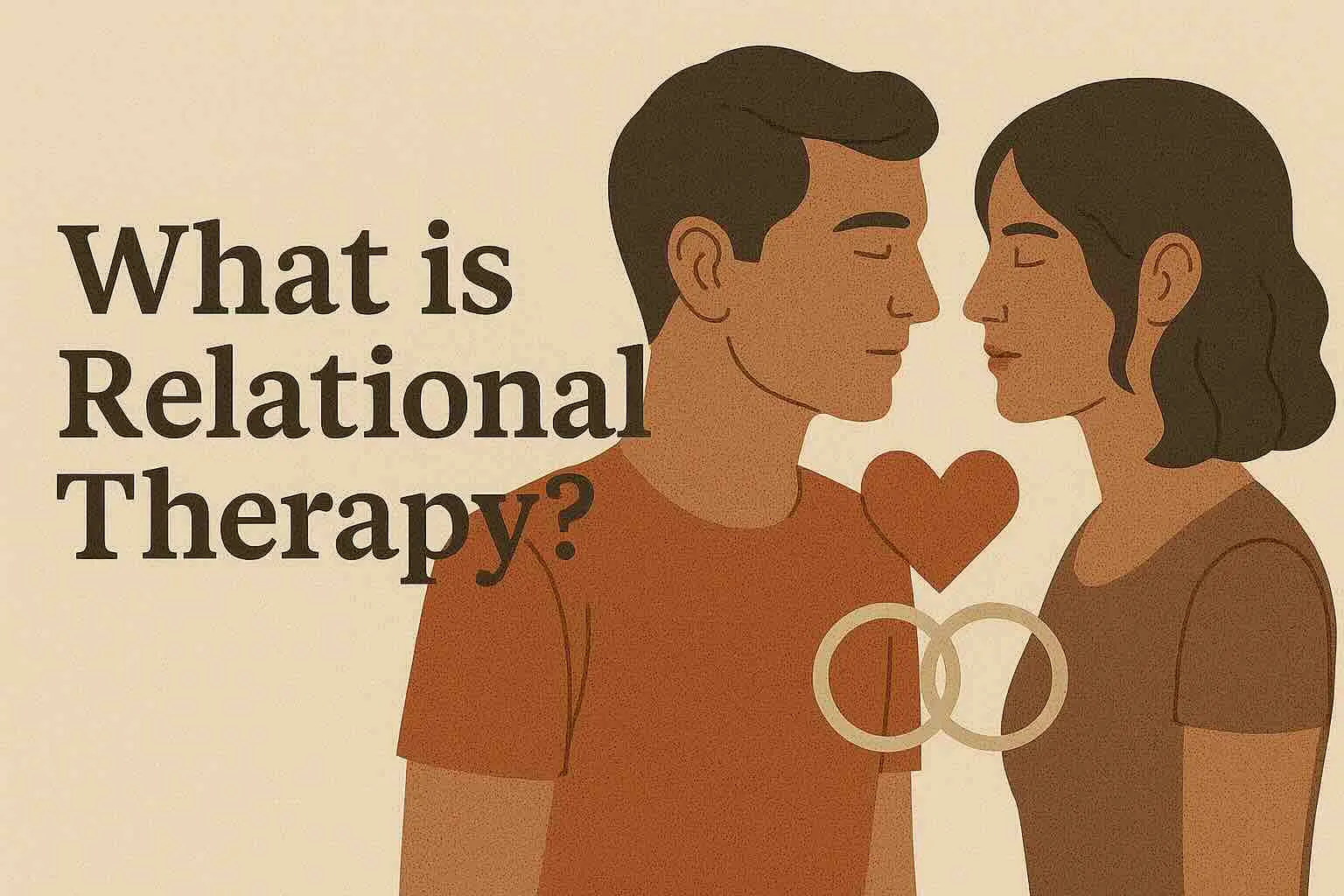TL;DR
Relational Therapy emphasizes the mutual influence between client and therapist, focusing on attachment patterns, early relationship schemas, and present-day interpersonal dynamics. Core techniques include enactments, exploration of the interpersonal self, and corrective emotional experiences. Research shows moderate effectiveness (d ≈ 0.60) for depression, anxiety, and relationship distress. Noah AI supports relational work through guided reflection on interactions, pattern identification, and practice exercises via chat and call.
Relational Therapy recognizes that our psychological vulnerabilities and strengths are formed and maintained in relationship contexts. By exploring current and past interpersonal patterns within the therapeutic alliance, clients gain insight and corrective experiences that promote emotional healing and healthier connections.
Core Principles of Relational Therapy
- Mutual Influence: Both client and therapist co-create the therapeutic relationship, revealing real-time interpersonal dynamics.
- Attachment and Early Relational Schemas: Early caregiver relationships shape expectations and behaviors in adult relationships.
- Interpersonal Self: Clients’ self-concept emerges through interactions with significant others.
- Here-and-Now Focus: Present-moment analysis of client-therapist interactions allows direct access to relational patterns.
- Corrective Emotional Experience: Clients practice new, healthy ways of relating within therapy to reshape internalized schemas.
- Co-Regulation: Therapist models emotional regulation, helping clients develop self-regulation through relational engagement.
Key Techniques
Enactments
- Role Rehearsal: Clients and therapist act out problematic relational scenarios in session.
- In-Session Repairs: When ruptures occur, therapist and client collaboratively address misunderstandings to model repair.
Exploration of the Interpersonal Self
- Reflective Dialogue: Therapist inquires how clients see themselves in relationships and how others respond.
- Mirroring and Validation: Therapist echoes clients’ experiences to strengthen self-understanding and worth.
Corrective Emotional Experiences
- Therapeutic Feedback: Clients receive compassionate, honest feedback that contrasts with past relational failures.
- Boundary Testing: Clients practice asserting needs and receive respectful containment from therapist.
Attachment Mapping
- Assessment of Attachment Style: Discussion of client’s comfort with closeness, trust, and autonomy in relationships.
- Linking Past to Present: Therapist helps clients connect childhood attachment patterns to current relational difficulties.
How Relational Therapy Works
- Initial Assessment: Identify interpersonal goals, recurring relationship themes, and attachment concerns.
- Alliance Building: Therapist demonstrates empathy, reliability, and authenticity to establish safety.
- In-Session Exploration: Real-time focus on client-therapist interactions reveals automatic relational patterns.
- Interpersonal Interventions: Enactments, mirroring, and feedback create corrective relational experiences.
- Outside Practice: Clients apply new relational strategies in daily life and report outcomes in subsequent sessions.
- Consolidation: Review progress in relationship patterns and plan for ongoing relational health.
Evidence of Effectiveness
- Meta-Analytic Findings: Relational therapies yield moderate effect sizes (d ≈ 0.60) for symptom reduction in depression and anxiety and improvement in relationship satisfaction.
- Attachment-Based Outcomes: Clients show increased secure attachment behaviors and reduced interpersonal avoidance.
- Alliance Impact: Strong therapeutic alliance correlates with better treatment outcomes across modalities.
Who Benefits Most
- Individuals with Relationship Distress: Couples experiencing conflict, trust issues, or emotional disconnection.
- Attachment Trauma Survivors: Those with neglectful, inconsistent, or abusive early relationships.
- Personality Vulnerabilities: Clients with borderline, avoidant, or anxious attachment traits.
- High-Functioning Adults: Professionals seeking balance between autonomy and connection.
Noah AI’s Role in Relational Therapy
Noah AI adapts relational principles for virtual delivery:
- Interactive Reflection Prompts: AI guides clients to explore recent relational interactions and emotional responses.
- Pattern Identification Exercises: Chat scripts help clients map recurring relational themes and attachment triggers.
- Corrective Dialogue Practice: Simulated role-plays for assertiveness, boundary setting, and repair strategies via chat.
- Homework Reminders: AI schedules interpersonal exercises, like initiating supportive conversations or practicing vulnerability.
- Progress Summaries: Reflective summaries of relational insights and recommended next steps.
Frequently Asked Questions
Can relational therapy be effective online?
Yes. Focusing on interpersonal patterns through guided reflection and role-play adapts well to chat and call formats.
How long does it take to see changes?
Clients often notice improvements in relational awareness within 4–8 sessions, with deeper shifts over 12–20 sessions.
Does AI replace the therapist’s role in relational therapy?
No. Noah AI supplements human therapy by reinforcing insights and practice between sessions; human guidance remains essential for deeper relational work.
Conclusion
Relational Therapy offers a dynamic, interactive approach to healing by leveraging the therapeutic relationship itself as the primary vehicle for change. Through techniques like enactments and corrective emotional experiences, clients rewire internalized relational schemas and learn healthier ways of connecting.
With Noah AI’s virtual support—interactive reflections, pattern mapping, and role-play exercises—relational insights extend beyond the therapy hour, empowering clients to cultivate authentic, fulfilling relationships in every aspect of life.
Download the Noah AI app for iPhone and Android today.
References
- “Meta-Analysis of Relational Psychotherapy Outcomes,” Journal of Consulting and Clinical Psychology.
- “Attachment-Based Interventions in Psychotherapy,” American Journal of Psychotherapy.
- “Enactments and Repairs in the Therapeutic Alliance,” Psychotherapy Research.
- “Interpersonal Self and Identity Formation,” Journal of Personality Assessment.







